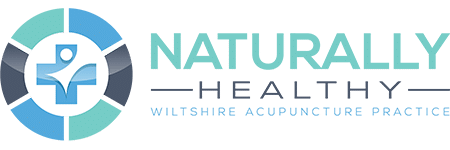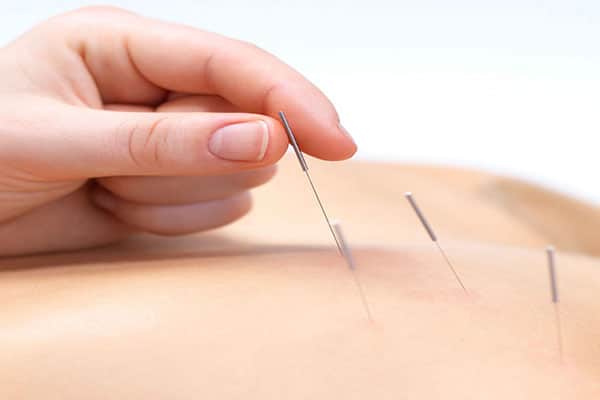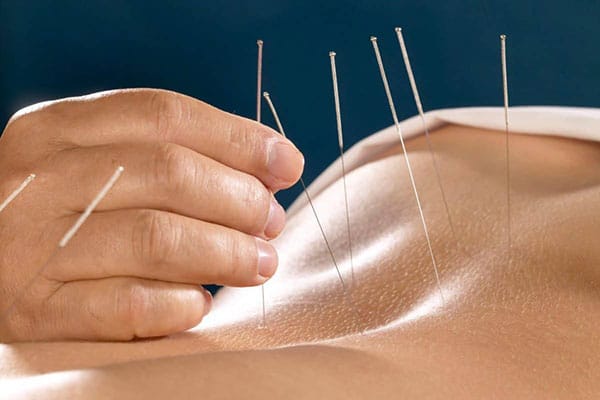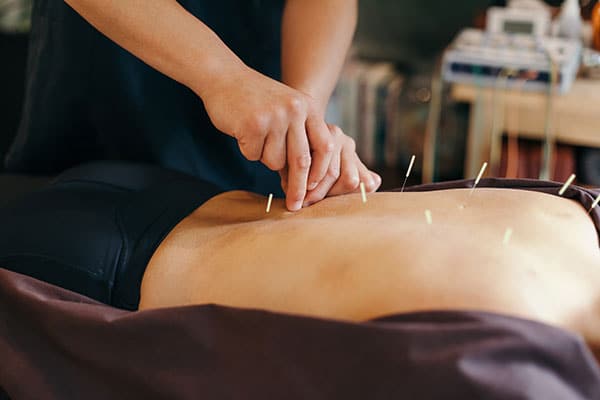News
Acupuncture and IVF
A recent German study, (and many studies since havew confirmed these findings) found that just 2 acupuncture treatments on the day of embryo transfer increased the chances of becoming pregnant through IVF by a staggering 62%.
Researchers at the Christian-Lauritzen-Institute in Ulm, Germany included 160 patients undergoing IVF for the study. The patients were all required to have good quality embryos and were evenly and randomly divided into two study groups according to similar age and diagnosis characteristics.
When the patients were examined using ultrasound six weeks after IVF procedures 42% of the patients who had received acupuncture had become pregnant which compared to 26% within the control group.
If you would like to find out more about the fertility treatments please contact the practice for more detail.
Fertility problems – Acupuncture can help
New clinical evidence that the needle-based alternative therapy is an effective form of pain relief, has sparked positive discussion about its suitability for medical use. But can it really increase a woman’s chances of conceiving?
“Fertility is certainly one of the issues at our forefront,” says a spokesperson for the British Acupuncturist Council. “Acupuncture can work on a very superfluous level, simply tapping and releasing a person’s energy, or it can work at a deeper level to support the system’s functionality. It can increase the blood flow into the uterus to allow the lining to be thicker and lodge the egg. It can also work on a hormonal level, so that FSH and thyroxin are rebalanced. It all works through the same processes, the same points, the same needles.”
Although the medical community has been reluctant to embrace alternative therapies in the past, there is increasing evidence that acupuncture in particular may be helpful in matters of fertility and childbearing. A recent study by the Gothenburg Institute for the Health of Women and Children found that the practice can reduce the more unpleasant side-effects of pregnancy, including pelvic girdle pain. And in 2002, a team of German researchers claimed that acupuncture can boost IVF success rates by almost 50 per cent. They believe the therapy can affect the auto-nervous system, which is involved in the control of muscles and glands and impacts on the receptiveness of the uterus lining.
At the Wiltshire Acupuncture Practice there have been patients that have benefited from acupuncture suffering from a range of gynaecological problems. Amongst them, those that had given up hope of ever becoming pregnant yet successfully went on to produce healthy babies. It is important to look at a range of imbalances and not those related directly to fertility and this might include sleep quality, regulation of the menstrual cycle, improved digestion, easing of menstrual related symptoms, increased energy and reduced stress.
The first written evidence of acupuncture’s use in the treatment of fertility dates back over two thousand years to 3AD. Zhang Zhong-jing, a famous physician from the Han Dynasty, discussed infertility and a variety of women’s diseases conditions in his text Jin Gui Yao Lue (Essentials of the Golden Cabinet).
In more recent times, Western science has established the following proven benefits that acupuncture offers to reproductive health:
Regulates the menstrual cycle.
Invigorates sperm, enhancing both sperm count and motility.
Strengthens the immune system and enhances general health.
Reduce stress, control anxiety, enhance sleep and increase energy level.
Balances endocrine system, regulates hormones and improves egg quality.
Increases blood flow to the uterus, improving eudiometrical lining implantation. Improves blood flow to the ovaries, increasing ovarian response – more follicles and better egg production.
Lessens the side effects associated with hormonal treatment.
Protects against miscarriage, improving live birth rate.
Increase the chance of pregnancy for women undergoing in-vitro fertilization (IVF).
Those who suffer from functional infertility make excellent candidates for acupuncture. Fertility issues associated with hormonal problems, immune disorders, irregular menstruation, amenorrhoea and age related issues all fall within the category of functional infertility.
Stress has been proven to dramatically decrease fertility for both men and women and consequently acupuncture and Chinese herbal medicine can dramatically increase fertility by reducing stress if this is a prevailing factor.
Oriental Medicine has the phrase “Cultivate the soil before you plant the seed.” This is a cornerstone to Chinese Medicine’s approach to fertility treatment. The optimum time to treat someone is prior to their conception; in other words, both parents should be brought to optimum health prior to conceiving. Chinese Medicine holds the view that this period will determine the health of the sperm and the egg and that optimising both parents health prior to conception delivers maxim constitutional health to the newborn child. For the mother-to-be, treatment also occurs during the pregnancy for this same reason.
When treating the female we focus on the menstrual cycle and aim for cycle regulation and to alleviate any associated pain or discomfort. It is also important look to improve overall health, insuring that sleep is of a high quality, digestion and elimination is strong and regular and that there is an overall sense of increased well-being. This is achieved by a combination of acupuncture as well as dietary, exercise and lifestyle advice.
It is most favourable to treat weekly for at least 3 months to properly regulate the menstrual cycle, balance hormone activity and to optimise egg quality. As women’s follicles are recruited over a 3 to 5 month time period before ovulation ongoing treatment allows adequate time during the preconception phase to “nurture nature”. After this 3-month phase it would be best to generally continue treatment twice monthly unless conception has already taken place.
It is however surprising how many clients become pregnant very soon after commencing treatment. The process of trying to conceive is in itself very stressful for many couples and the patient’s active involvement in the whole treatment process delivers a greater sense of control, which had previously seemed unattainable.
Acupressure ‘good for back pain’
Acupressure is more effective in reducing lower back pain than standard physical therapies, a study suggests. Researchers in Taiwan found the effects of the therapy which involves applying pressure on points stimulated by acupuncture lasted for six months.
They gave 129 patients six doses of either acupressure or physical therapy over a month and compared the results.
The study in the BMJ Online also found those who had acupressure had improved body function and were less disabled.
Those in the physical therapy group were given routine therapies such as spinal manipulation, heat therapy and electrical stimulation as well as exercise.
The acupressure group received sessions using a uniform technique.
The research team from the Institute of Preventive Medicine at the National Taiwan University in Taipei questioned all patients on their symptoms before the treatment and afterwards, and then again six months later.
They asked them how much pain they were in, whether it interfered with work and how many days off they had had.
They also asked how much their sleep was disturbed and how satisfied they were.
Combination of therapies
The team found acupressure resulted in an 89% reduction in disability compared to physical therapy.
They also found those in the acupressure group reported greater benefits in terms of leg pain, interference with work and days off from work or school.
Dr Graham Chandler, an adviser to the Institute of Complementary Medicine, said the findings already confirmed what many in his field knew.
“We find that acupressure is very effective in treating back pain generally, but it is not as effective as acupuncture.
“We would agree that it is better than physiotherapy for back pain but not all physical therapies.
“Acupressure is best used in combination with Chinese physical therapies and with techniques that teach the muscles to regain the original shape they had before injury.”
Intervention
A spokeswoman for the Chartered Society of Physiotherapy said experts recognised that offering one form of intervention in isolation will rarely solve the problem.
“Physiotherapists will assess their patients and draw up a treatment program for their specific condition and lifestyle, which may combine several techniques including manual therapies, appropriate exercises and in some cases acupressure.
“It is important that patients are educated in the cause of their problems and how they can self-manage their symptoms.
“This research offers further confirmation of the benefits physiotherapy intervention can bring to patients with lower back pain.”
Back pain affects approximately 17.3 million people in the UK – over one third of the adult population.
For around 3 million people their pain lasts throughout the year.
Loose those extra pounds now. Get in touch with your body’s needs the ‘Traditional Chinese Medicine’ way
Some people eat to their heart’s content and never put on weight! Some try a variety of diets and still put on pounds!
The Western approach to diet tends to assume we are all constitutionally the same. So we are consequently advised if you want to lose weight, cut down on fats, eat more fruit, avoid fry-ups, stop putting sugar in your coffee and tea and if all else fails, cut down on everything and try slimming aids.
George Dellar MBRCP Lic.ac MRSS (T) DS a Traditional Chinese Medicine Practitioner explains why general dietary advice does not always work.
“The Oriental approach recognises that everyone has different dietary and nutritional needs based on their constitution. Most overweight people assume they are overeating. This may not be the case. Over 2000 years of observation in the East has led to a method whereby an assessment of an individual’s overall health can be made from that person’s answers to carefully prepared questions. There are many indicators that could point to why one person is more likely to put on weight than another. The healthy function of the stomach, spleen, liver, gallbladder and so on can have significant effects if they are not working in a balanced way. The propensity for a person to put on weight can be determined and if they fall into that category this pattern altered”
The following few questions have been specially prepared to help you determine whether you fall into the category of people that are likely to put on weight without overeating. It only gives a snap shot idea of your propensity to put on weight, however it gives an interesting indication.
Could you avoid putting on those unwanted pounds? This could be the answer you have always being looking for……
What is the most appropriate answer A, B, or C to the questions below, keep a note of how many A’s B’s and C’s you have, then see how you scored: –
SCORE
1 Is your appetite always poor?
A variable?B always good? C
2 Do you snack between meals?
all the time?A sometimes?B never? C
3 Do you suffer from sores in the mouth?
all the time?A sometimes?B never? C
4 Is your mouth dry?
all the time?A sometimes?B never? C
5 Do you suffer from bloating or wind?
all the time?A sometimes?B never? C
6 Do you experience dizziness
all the time?A sometimes?B never? C
7 Do you experience any muscular pain with a sensation right through to the skin?
all the time?A sometimes?B never? C
8 Do you get a dull pain in your stomach?
all the time?A sometimes?B never? C
9 Do you sweat unnaturally on your arms and legs?
all the time?A sometimes?B never? C
10 Do you suffer from constipation?
all the time?A sometimes?B never? C
11 Do you get a thirst with a desire to sip liquids slowly?
all the time?A sometimes?B never? C
12 Do you get a desire to only drink warm liquids?
all the time?A sometimes?B never? C
Now score your answers as follows: – If you ticked A score 3, B score 2 & C score 1 If your total score is:-
12 – 19 you are very unlikely to put on weight unless you overeat
20 – 27 you are at risk of putting on weight even if you do not overeat
28 – 36 you have a very high risk of putting on weight even if you do not overeat
fI your total score is between 20 and 36, the efficiency of your body’s ability to absorb foods and to work efficiently could be impaired. In Traditional Chinese Medicine (TCM) one of the reasons for this is the over-retention of moisture in the body, either as water or as phlegm, it is referred to as ‘damp’ and is frequently caused by combinations of over nutrition, lack of exercise exposure to damp environments and eating the wrong type of foods. Another reason your digestive system may not be very efficient could be related to the function of the eastern interpretation of the spleen organ. This organ (together with the stomach according to TCM) is related to assisting digestion and absorbing nourishment from our food. It controls the muscles in the four limbs and is closely related to the blood and is very easily influenced by eating the wrong type of foods.
However to find out in depth what foods would be needed to restore imbalances a fuller history is needed. There is a full diet questionnaire available which has taken the last 8 years to develop entitled ‘naturally healthy’. It asks 150 questions, dealing with a variety of health issues, and gives comprehensive food advice that can help balance and enable your body to work more effectively. This general health questionnaire can be requested from George Dellar and as he says:
‘Herein lies the key to helping people, the diet advice needs to be tailor made to counteract very specific imbalances, once corrected the body is able to function far more efficiently. The ‘naturally healthy’ advice sheets indicates what foods to include more of in your diet and what should be left out’.
To get your ‘naturally healthy’ questionnaire and more details email George Dellar info@naturallyhealthy.net
Acupuncture shown to work on brain in pain relief says BBC2 programme
BBC2’s programme “Alternative Health” showed researchers carrying out brain scans on people having acupuncture. The BBC2 show also featured heart surgery done using acupuncture instead of a general anaesthetic. The patient is conscious during the operation in China, but she was given sedatives and a local anaesthetic.
In Alternative Medicine: The Evidence, volunteers were subjected to deep needling, which involves needles being inserted 1cm into the back of the hand at well-known acupuncture points.
A control group underwent superficial needling with needles placed only 1mm in.
The needles are then twiddled until the participants feel a dull, achy or tingling sensation. For those in the deep needling group this stimulates the nervous system.
During these two procedures, the volunteers underwent brain scans to see what, if any, effect there was in the brain.
The team, including leading scientists from University College London, Southampton University and the University of York, found the superficial needling resulted in activation of the motor areas of the cortex, a normal reaction to pain.
But with deep needling, the limbic system, part of the pain matrix, is deactivated.
The finding was surprising because experts had always assumed acupuncture activates the brain in someway.
Professor Kathy Sykes said: “The pain matrix is involved in the perception of pain – it helps someone decide whether something is painful or not, so it could be that acupuncture in some ways changes a person’s pain perception.
“We have found something quite unexpected – that acupuncture is having a measurable effect on the human brain.
“We are not suggesting that it should be used during surgery, although it is in China, but just that it acts as a pain relief and should be taken seriously.”
JUST IN – Rats help scientists get closer to solving the mystery of acupuncture!
Study finds that form of therapy which uses electric current blunted activity in rats’ hormonal pathway linked to stress, chronic pain and mood
Rats had needles at an powerful acupuncture point
Rats – not these pictured – had needles inserted at an especially powerful acupuncture point. Photograph: Danish Siddiqui/Reuters
Press Association
A biological mechanism explaining part of the mystery of acupuncture has been pinpointed by scientists studying rats.
Stimulation with electroacupuncture – a form of the therapy in which a small electric current is passed between a pair of needles – blunted activity in a key hormonal pathway linked to stress, chronic pain and mood, the researchers found.
The findings provide the strongest evidence yet that the ancient Chinese therapy has more than a placebo effect when used to treat chronic stress, it is claimed.
Rats had needles inserted at an especially powerful acupuncture point known as stomach meridian point 36 (St36). Although linked to digestive problems and multiple other ailments, St36 is on the shin.
Traditionally, acupuncture involves unblocking energy paths known as meridians that flow around the body, keeping it in balance.
The research showed that applying electroacupuncture to the St36 point affected a complex interaction between hormones known as the hypothalamus pituitary adrenal (HPA) axis. In stressed rats exposed to unpleasant cold stimulation, HPA activity was reduced.
Lead investigator Dr Ladan Eshkevari, from Georgetown University medical centre in Washington DC, said: “The benefits of acupuncture are well known by those who use it, but such proof is anecdotal.
“This research, the culmination of a number of studies, demonstrates how acupuncture might work in the human body to reduce stress and pain, and potentially depression. We have now found a potential mechanism, and at this point in our research, we need to test human participants in a blinded, placebo-controlled clinical study – the same technique we used to study the behavioural effects of acupuncture in rats.
Advertisement
“Some antidepressants and anti-anxiety drugs exert their therapeutic effects on these same mechanisms.”
The study, reported in the journal Endocrinology, compared stressed rats given electroacupuncture, a sham therapy in which needles were not inserted in a meridian point, or no treatment. A fourth group of rats were not exposed to stress and did not receive acupuncture.
Electroacupuncture delivered at St36 minutes after cold stimulation, or as a pre-treatment, was found to be effective at preventing rising levels of stress hormones. Behaviour linked to depression and anxiety was reduced in the treated rats.
“This is the first report linking the effects of electroacupuncture at St36 to chronic stress-induced depressive and anxious behaviour in animals,” Eshkevari added. “This work provides a framework for future clinical studies on the benefit of acupuncture, both before or during chronic stressful events.”
1. Acupuncture shown to work on brain in pain relief says BBC2 programme
2. Loose those extra pounds now. Get in touch with your body’s needs the ‘Traditional Chinese Medicine’ way
3.Acupressure ‘good for back pain’
4. Fertility problems – Acupuncture can help
http://www.youtube.com/watch?v=dZJcUHF83S8 Dr. Norm Shealy on Energy Medicine -inspiring news for good health





